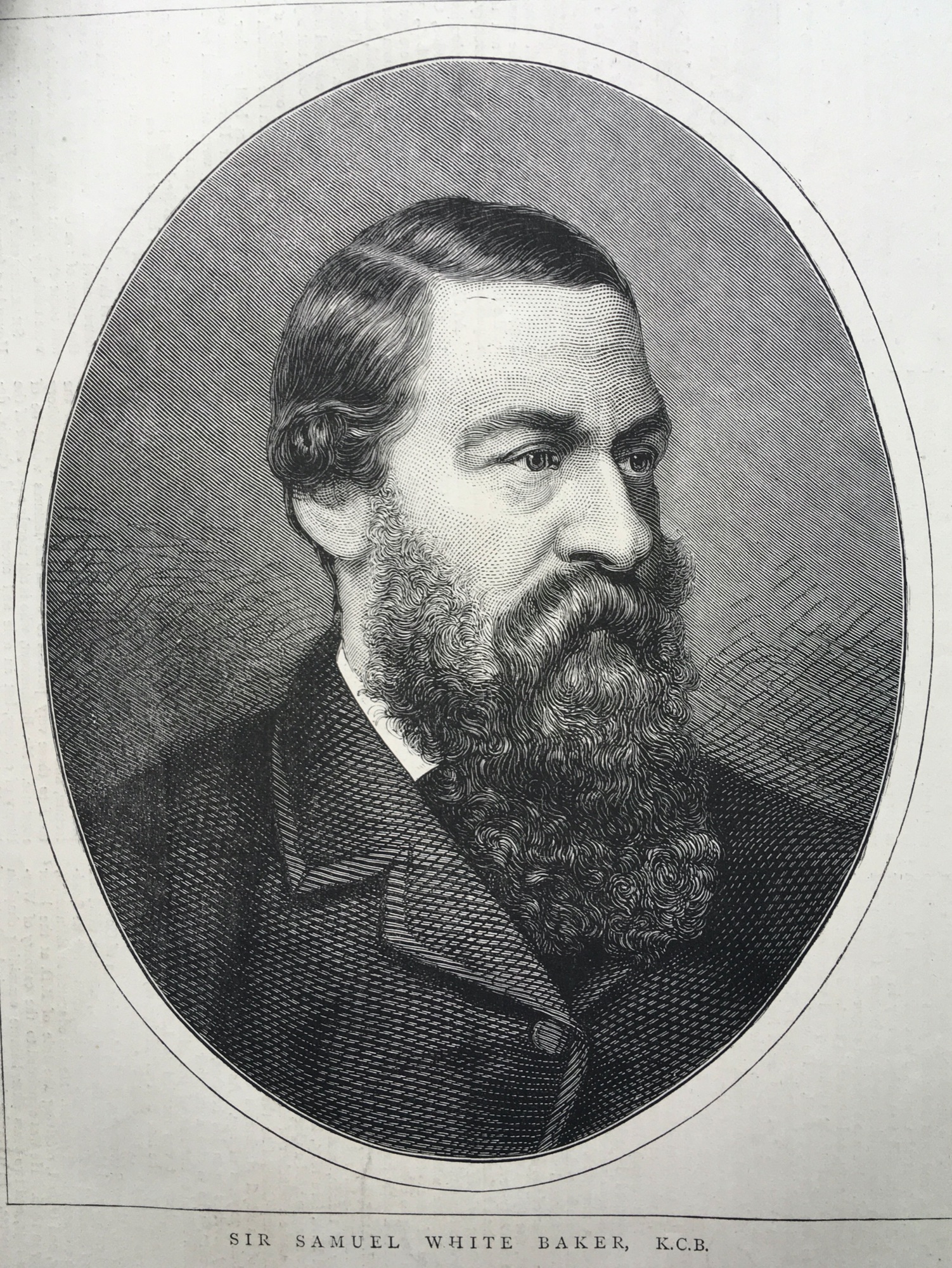Samuel White Baker and the Creation of British Imperial Knowledge

My next book is a study of the Victorian explorer Samuel White Baker (1821-1893). While relatively forgotten today, in his lifetime, Baker was as well-known as his contemporaries Speke, Burton, Livingstone, Gordon and Stanley. Baker was credited with discovering one of the sources of the Nile, but was also a prominent figure in anti-slavery campaigns in East Africa and in the complex politics of Britain’s emerging interest in Egypt and the Sudan. Baker was a larger than life character whose published accounts of his adventures remain a seriously compelling read, even today.
However, my interest in Baker is not only intrinsic. I believe his life and career can illuminate some overlooked and undervalued aspects of the way that Britain fashioned, and envisaged, its empire in the second half of the nineteenth century. Baker’s career spanned both the era of formative exploration by Europeans of sub-Saharan Africa and the creation of formal military and political intervention (and indeed, conquest) in the “Dark Continent”. The fact that Baker’s 1869-73 mission to suppress the slave trade in the Nile basin was carried out under the authority of the Khedive Isma’il underlines that the evolving British empire in Africa was shaped by the colonial ambitions of others, not least the Ottoman Empire and Egypt itself. While Baker shared the unprepossessing racial prejudices of his time, his relationships with indigenous leaders were surprisingly sophisticated, and allow us insight into how the British made sense of the complex identities that characterised East and Central Africa.
Baker’s family life also calls into question clichés about masculinity, women’s roles and marriage in the Victorian period. Explorers and imperial administrators (and Baker was at various times both) have often been seen as eager to flee the claims of domestic life in Britain in favour of the bracing masculine culture of the imperial frontier. Not so with Baker: his second wife, Florence (whom, it was claimed, he rescued from an Ottoman slave auction), accompanied him on his expeditions, and was regularly credited in his writings with helping extricate him from the perils of local incursions and fierce wild animals.
That said, Baker never went anywhere without his trusted panoply of rifles, which, while he claimed to have deployed relatively infrequently against other humans, were let loose against the poor unfortunate wildlife of whichever part of the world he was currently situated in, with startling regularity. Baker’s legendary status as a big game-hunter will be addressed through recent historical approaches that have focused on the intersection between imperial history and environmental history.
Finally, the fact that Baker’s travels encompassed not only East and Central Africa, but also Sri Lanka, the Balkans, Japan and North America (and his intermittent life as an English country gentlemen), reminds us that we need to consider the multiple and simultaneous locations in which British imperial identities were formed in the last third of the nineteenth century. Baker’s life allows us to scrutinize the British empire in Africa (and beyond) at the moment of its creation, and in so doing, requires us to recognize there was nothing predetermined about the precise patterns into which imperial authority had settled by the 1890s.
Baker set off on his first African expedition in 1861, immediately after the decade that had seen growing confidence in Britain’s economic and commercial success, but which had also been marred by the crises of the Crimean War and the Indian Rebellion. By the time he died, he had become a mentor to the proconsuls of Britain’s imperial meridian, such as Cromer and Kitchener. Baker’s life, long neglected by academic historians, may not provide definitive answers to why or how Britain acquired an extended imperial reach in the late-nineteenth century. However, it certainly does help explain what the Victorians thought they were trying to do as they sought to construct a coherent notion of imperial knowledge, at the very moment that their dominion expanded across the globe.